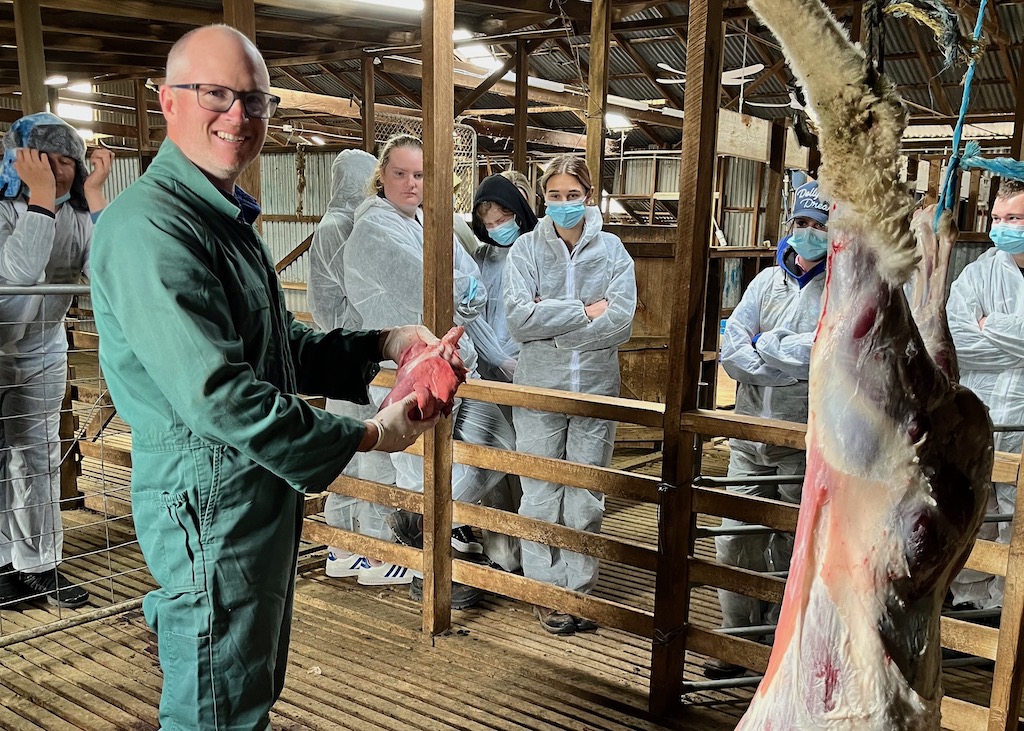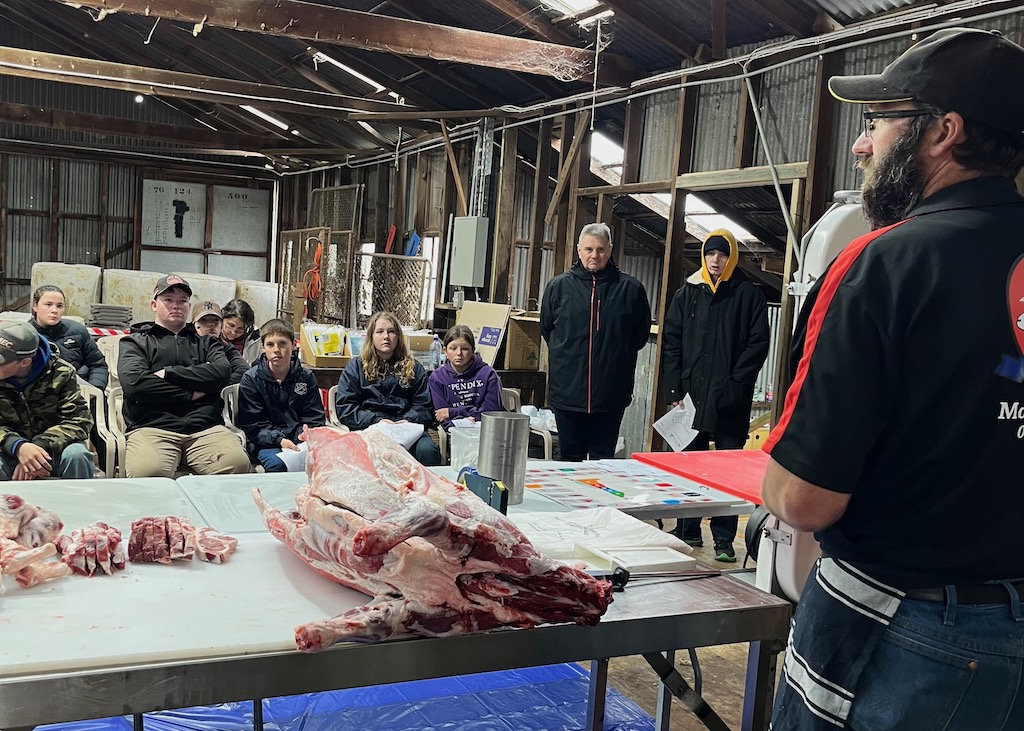
Vet Dr Will Lucas talks about veterinary science at the Australian Agriculture Centre Farm, Crookwell, during a course aimed at getting high school students interested in a career in the profession. Photo: Jo Marshall.
As agricultural industries across the Southern Tablelands struggle to attract staff, two men in challenging roles running businesses in the bush have shared their experiences with high school students preparing for the workforce.
Goulburn mobile butcher Andrew Chandler who visits farms to kill his meat and veterinarian Dr Will Lucas, a co-owner of the Crookwell Vet Hospital, led a taster course to attract teenagers from southern NSW and Canberra to careers in either veterinary science or the meat industry.
More than 90 students saw the men at work at the Australian Agricultural Centre (AAC) farm near Crookwell. AAC’s purpose is to improve the understanding of agricultural activity and its importance worldwide.
Will has pulled a dead calf from a cow in driving rain and experienced the heartbreak of animals suffering during the drought, yet looks forward to all aspects of his work as a co-owner of the Crookwell Veterinary Hospital.
“I quite like the challenge, sometimes the weather factor makes it more challenging than it needs to be,” Will, one of four vets at the practice, said.
“Farmers (during droughts) are striving to do their best but can’t afford feed and have to make tough decisions,” he said. “That’s always a difficult part of the job.”
After studying for five to six years to attain a veterinary science degree, country vets will find themselves regularly on call of a nighttime and on weekends, which can make it difficult if they are raising young families at the same time.
Will said it could be financially challenging to attend university as a mature age student. Studying through James Cook University in Townsville, he had completed an earlier degree course in agriculture which had helped him to be a good candidate for his veterinary course.
These days he and his colleague Dr Jayde Costello also work with big animals like horses, cows and sheep which can be difficult to handle.
“It is physical, not necessarily requiring strength, but large animals can throw you out a bit; you have to be wary of them and feel confident around them,” Will said.
“It’s a lot easier earning that kind of money in a small animal practice than it is in a mixed practice, doing large animals,” he said.
“I enjoy being out on farms with large farm animals, cattle especially, horses and sheep. I also enjoy being in the clinic doing small animals.
“Some days I might be pulling out a calf one minute and that afternoon putting a plate on a dog’s leg, fixing its fractured leg.”
The vets cover a 60-kilometre radius centred on Crookwell, including Gunning, Bigga, Taralga and towards Goulburn. Occasionally they travel further.

Butcher Andrew Chandler gave students an insight into meat marketing during the ‘ag taster course’ hosted by the Australian Agricultural Centre. Photo: Jo Marshall.
Butcher Andrew Chandler broke down a sheep carcass at the course in Crookwell, showing all cuts of meat including the basic chops and roast. Dividing the components of meat marketing into marbling, colour, fat, weight, and what meat cuts are used for. Andrew said it was a reality check for many of the students to demonstrate what happens before meat is displayed in a shop window.
He said young people interested in his trade were few and far between. “It’s not easy, the hours are long and it’s hard work,” he said.
But there were upsides, too – no two days were the same, you visited different farms and talked to livestock producers rather than remaining confined to the one shop.
He found students from places like Crookwell and Tumbarumba asked many questions, as did some of the parents, whereas teenagers from the city had fewer questions.
ACC’s chief executive Jo Marshall said learning about veterinary science and the meat industry gave students a better appreciation of what went into producing food and ethical considerations that needed to be considered.
“The students were excited about being able to see, touch, and understand from a real vet,” Jo said.
“It gave them an opportunity to experience a career in veterinary science before starting years of study, and taught them there are many real-life pathways into their chosen career.”
Ms Marshall said the course was relevant to the students’ Higher School Certificate studies.







